Information democracy
Powerful companies and governments control the way the internet and new technologies are deployed. These actors blur the lines on corporate power in ways that have tremendous impact on people and democracies. The dominant business model of ‘Big tech’ platforms is based on surveillance, polarization and power imbalances. This ‘surveillance capitalism’ has had a global impact on democracy. For example, state and private actors can use the internet and technologies to spread political disinformation, to manipulate electoral results, to attack human rights defenders and to limit civic space.
Filter resources
-
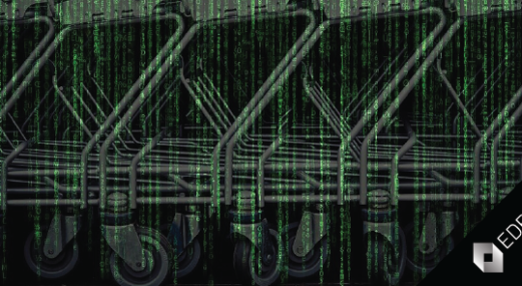
EU – Japan trade agreement undermines algorithmic transparency
The EU trade agreement with Japan undermines algorithmic transparency, Dutch EDRi member Vrijschrift wrote in a letter to the Dutch Parliament.
Read more
-
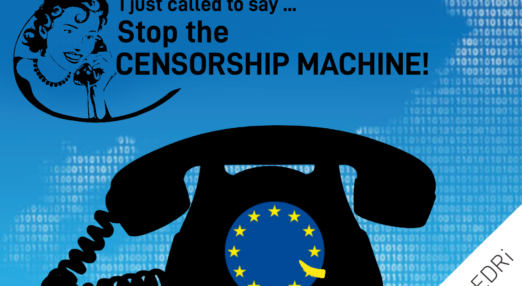
Stop the Censorship Machine and Save Your Internet!
Join the fight against the EU's Censorship Machine!
Read more
-
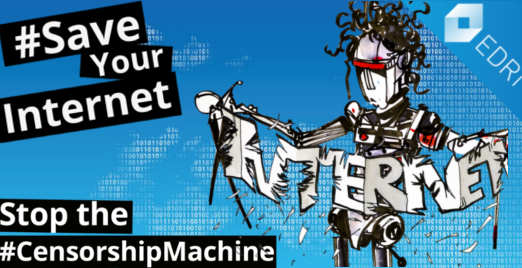
EU Censorship Machine: Legislation as propaganda?
The provisions are so controversial that supporters in the European Parliament have resorted to including purely political – and legally meaningless – "safeguards" in the text as a way of getting the proposal adopted.
Read more
-
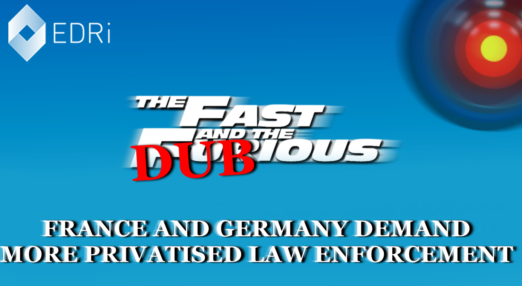
LEAK: France & Germany demand more censorship from internet companies
Policy makers put pressure on the EU to enact legislation for online platforms like Facebook, but also for small companies, to be legally required to engage in more and quicker privatised and unaccountable censorship.
Read more
-

EDRi’s leadership transition: Back to the future…
Challenges to digital rights will not decrease – on the contrary, the speed with which technology is integrating into every part of our lives is making it increasingly difficult to ensure that rights and freedoms are respected from the outset.
Read more
-

Join the coordinated calls against EU’s Censorship Machine
Several organisations in different European countries have picked up their phones and mobilised against article 13 of the copyright Directive.
Read more
-
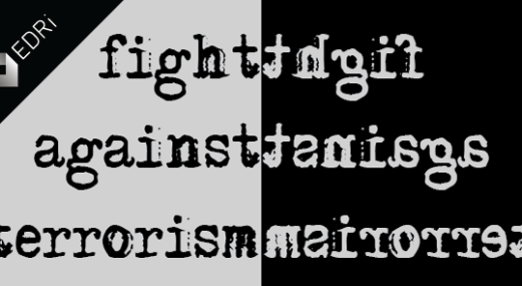
Belgium Constitutional Court decision on the concept of incitement to terrorism
On the 15 March, the Constitutional Court of Belgium issued judgement 31/2018 on the action for the annulment of the law of 3 August 2016 containing various provisions in the fight against terrorism.
Read more
-
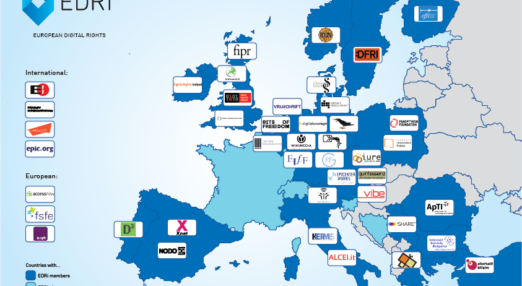
EDRi’s leadership transition: Looking back at our victories
EDRi is not one person. EDRi is not one office. EDRi is 39 organisations, mostly volunteer-run. EDRi is sweat and stress, frustration and success. Most of all, EDRi is 15 years of successes made possible by an immensely passionate network. And this network is now looking for a new Executive Director.
Read more
-

EU Member States agree on monitoring & filtering of internet uploads
On 25 May, the European Council agreed to a negotiating position on the draft copyright directive. This will allow the presidency of the Council to start negotiations with the European Parliament on mass monitoring and filtering of internet uploads and a chaotic new “ancillary copyright” measure that will make it harder to link to and quote news sources.
Read more
-

Looking back at EDRi’s victories in 2017
Our key successes of 2017 were the vote in a European Parliament Committee rejecting upload filters in the Copyright Directive proposal, EU Parliament's plenary vote supporting ePrivacy, and the Council of Europe welcoming of EDRi recommendations on the issue of cross-border access to data by law enforcement.
Read more
-

ENDitorial: Can design save us from content moderation?
Our communication platforms are polluted with racism, incitement to hate, terrorist propaganda and Twitter-bot armies.
Read more
-

Upload filters endanger freedom of expression
There are several examples of how automated upload filters are censoring human rights activists. As it has been proven, some filters used to classify content which is “offensive”, “extremist” or simply “inadequate for minors” have ended up censoring videos which tried to denounce injustices.
Read more
